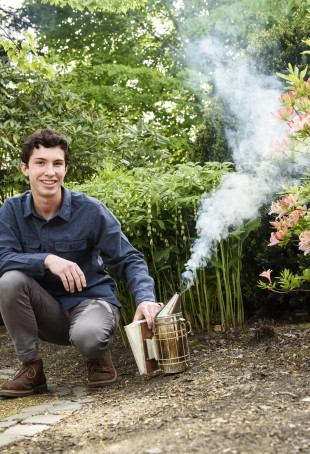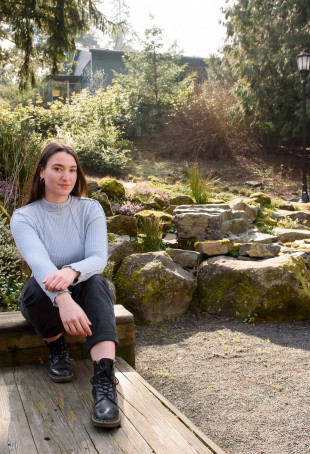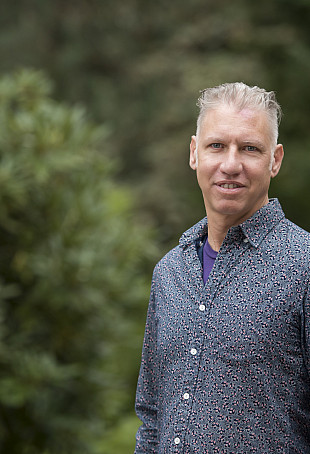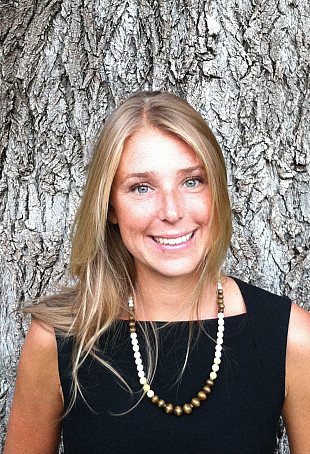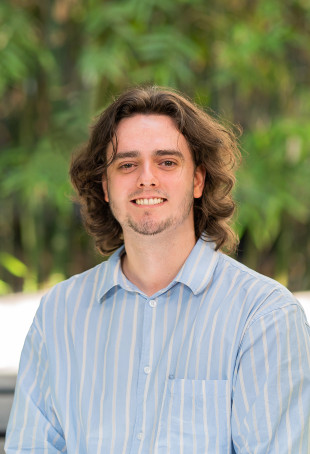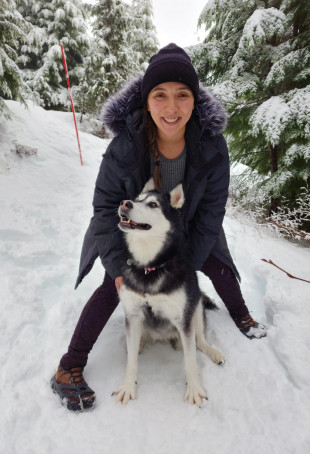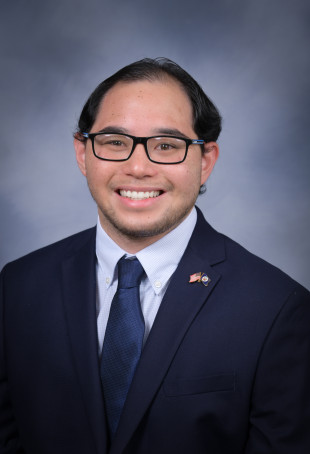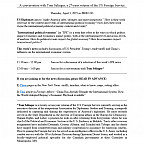Majors
Minors
- <a href="/live/image/gid/79/width/650/86494_Political_Economy.jpg" class="lw_preview_image lw_disable_preview" tabindex="-1"><picture class="lw_image lw_image86494"><source media="(max-width: 500px)" type="image/webp" srcset="/live/image/scale/2x/gid/79/width/500/height/479/crop/1/86494_Political_Economy.rev.1607650511.webp 2x" data-origin="responsive"/><source media="(max-width: 500px)" type="image/jpeg" srcset="/live/image/scale/2x/gid/79/width/500/height/479/crop/1/86494_Political_Economy.rev.1607650511.jpg 2x" data-origin="responsive"/><source media="(min-width: 501px)" type="image/webp" srcset="/live/image/gid/79/width/720/height/690/crop/1/86494_Political_Economy.rev.1607650511.webp 1x" data-origin="responsive"/><source media="(min-width: 501px)" type="image/jpeg" srcset="/live/image/gid/79/width/720/height/690/crop/1/86494_Political_Economy.rev.1607650511.jpg 1x" data-origin="responsive"/><img src="/live/image/gid/79/width/720/height/690/crop/1/86494_Political_Economy.rev.1607650511.jpg" alt="Courses in the minor explore the political-economic dynamic from multiple disciplinary perspectives, historical angles, and conceptual ap..." width="720" height="690" data-max-w="1104" data-max-h="1058" loading="lazy" data-optimized="true"/></picture></a> <div class="hero-split_image_caption collapsable-caption">Courses in the minor explore the political-economic dynamic from multiple disciplinary perspectives, historical angles, and conceptual approaches.</div>
Political Economy
We provide a rigorous, multidisciplinary approach to the study of political economy. You will gain strong analytical skills and a thorough knowledge of contemporary events—key attributes that employers and graduate programs alike seek in successful applicants.
Majors
Minors
Why Choose a Minor in Political Economy?
Our innovative and interdisciplinary program consists of a diverse group of faculty and students who investigate the interaction between the political, economic, social, and cultural aspects of a society. We help you make sense of a complex world in which a multitude of economic and political interests conflict at the local, national, and international levels.
What You’ll Study
Showcase what students will learn and some standout or unique classes. If there is a graduate program that this program would naturally funnel into, then make sure to mention that the student could stay and get their graduate degree.
Our program explores the political-economic dynamic from multiple disciplinary perspectives and historical angles, using a range of conceptual approaches. Core courses for the minor are taught by economics, international affairs, and sociology and anthropology faculty, and introduce you to various theories of political economy as well as their application to significant national and international patterns and developments. The remaining courses are on the topics ofglobal dynamics, national structures and power, and cultural forces and social movements to best prepare you for your professional life outside Lewis & Clark.
We believe in the value of hands-on experiential learning. Many political economy students get involved in collaborative research with faculty, available through classes and summer programs. We provide extensive guidance to help students find and secure these opportunities. Many of our students also earn course credit while on an overseas program.
Outside the classroom, gatherings are organized throughout the year to discuss and debate contemporary social, political, and economic events. Each year, we also sponsor the Political Economy Program Best Paper Award, given to the best student paper on any topic related to the field. The author or authors receive a $50 gift certificate to a local independent bookstore.
Connect With Lewis & Clark!
After you hit submit, we will follow up with information about L&C, and you will have the opportunity to share a bit more about yourself.
- <div class="statistics_slide swiper-slide"> <div class="statistics_box" style="text-align:left;"> <div class="statistics_box_inner"> <h4 class="statistics_headline" style="font-size: 3rem;"> Favorite Class </h4> <h6 class="statistics_summary" style="font-size: 2rem;"> <strong>Care, Healing, and Medical Anthropology with Professor Sepideh Bajracharya</strong> </h6> <!-- quote --> <div class="statistics_summary"> <p> I learned so much about our views on “care” and myself. One of my favorite ethnographies we read was “Life beside itself” by Lisa Stevenson and “Pastoral Clinic” by Angela Garcia. What I loved is that we read books and written pieces that were written by diverse authors - POC and from other parts of the world.</p> </div> <div class="profile-box_name" href="/live/profiles/18302-andrea-blobel-perez"> <a href="/live/profiles/18302-andrea-blobel-perez">Andrea Blobel Pérez BA ’19</a> </div> <!-- class year --> <div class="profile-box_field"> Major: Sociology and Anthropology </div> <div class="profile-box_field"> Minor: Political Economy </div> </div> </div> </div>
- <div class="statistics_slide swiper-slide"> <div class="statistics_box" style="text-align:left;"> <div class="statistics_box_inner"> <h4 class="statistics_headline" style="font-size: 3rem;"> Favorite Class </h4> <h6 class="statistics_summary" style="font-size: 2rem;"> <strong>Ancient Cities with Assistant Professor of History Joel Sweek</strong> </h6> <!-- quote --> <div class="statistics_summary"> <p> <span style="font-weight: 400;">The class was demanding, but Professor Sweek is a true expert in his field. The class had the kind of academic rigor and seriousness that I’d hoped to find in college. Professor Sweek’s lectures were brilliantly engaging and pushed me to think like a historian. The class left me in awe of the ancient world and inspired me to fully commit to pursuing a history major at L&C.</span> </p> </div> <div class="profile-box_name" href="/live/profiles/14674-mateo-kaiser"> <a href="/live/profiles/14674-mateo-kaiser">Mateo Kaiser BA ’23</a> </div> <!-- class year --> <div class="profile-box_field"> Major: History and international affairs (double) </div> <div class="profile-box_field"> Minor: Political economy </div> </div> </div> </div>
- <div class="statistics_slide swiper-slide"> <div class="statistics_box" style="text-align:left;"> <div class="statistics_box_inner"> <h4 class="statistics_headline" style="font-size: 3rem;"> Favorite Class </h4> <h6 class="statistics_summary" style="font-size: 2rem;"> <strong>Social Justice in the Global Economy with Dr. Elizabeth Bennett</strong> </h6> <!-- quote --> <div class="statistics_summary"> <p> It was a visceral awakening to the institutionalization of modern international labor exploitation. Hard class. Life changing.</p> </div> <div class="profile-box_name" href="/live/profiles/17417-cole-harris"> <a href="/live/profiles/17417-cole-harris">Cole Harris BA ’20</a> </div> <!-- class year --> <div class="profile-box_field"> Major: International Affairs </div> <div class="profile-box_field"> Minor: Political Economy </div> </div> </div> </div>
- <div class="statistics_slide swiper-slide"> <div class="statistics_box" style="text-align:left;"> <div class="statistics_box_inner"> <h4 class="statistics_headline" style="font-size: 3rem;"> Favorite Class </h4> <h6 class="statistics_summary" style="font-size: 2rem;"> <strong>We Tell Ourselves Stories with Megan Pugh</strong> </h6> <!-- quote --> <div class="statistics_summary"> <p> We used a number of different art forms (visual and literary) to discuss the importance of telling stories: why we tell them, who we tell them to, and everything in between. Joan Didion’s quote, “We tell ourselves stories in order to live,” was Megan’s inspiration for the class. I’d take it a thousand times more if I could, and I’d recommend it just as many times.</p> </div> <div class="profile-box_name" href="/live/profiles/10667-tuse-mahenya"> <a href="/live/profiles/10667-tuse-mahenya">Tuse Mahenya BA ’21</a> </div> <!-- class year --> <div class="profile-box_field"> Major: English </div> <div class="profile-box_field"> Minor: Political Economy </div> </div> </div> </div>
- <div class="statistics_slide swiper-slide"> <div class="statistics_box" style="text-align:left;"> <div class="statistics_box_inner"> <h4 class="statistics_headline" style="font-size: 3rem;"> Favorite Class </h4> <h6 class="statistics_summary" style="font-size: 2rem;"> <strong>Social Change With Professor Bruce Podobnik</strong> </h6> <!-- quote --> <div class="statistics_summary"> <p> The class tackles various social issues globally, and as a student I got insight into some incredible activism that I have been applying to my own actions in my home town in Denmark. To be able to read, discuss, and learn about some inspiring activists has not only been informative, but the class itself has been one of my most engaging classes so far because I felt that every single student in my class wanted to learn from one another.</p> </div> <div class="profile-box_name" href="/live/profiles/10616-tobias-varntoft"> <a href="/live/profiles/10616-tobias-varntoft">Tobias Varntoft BA ’21</a> </div> <!-- class year --> <div class="profile-box_field"> Major: Environmental Studies </div> <div class="profile-box_field"> Minor: Political Economy </div> </div> </div> </div>
- <div class="statistics_slide swiper-slide"> <div class="statistics_box" style="text-align:left;"> <div class="statistics_box_inner"> <h4 class="statistics_headline" style="font-size: 3rem;"> Favorite Class </h4> <h6 class="statistics_summary" style="font-size: 2rem;"> <strong>Social Justice in the Global Economy with Professor Elizabeth Bennett</strong> </h6> <!-- quote --> <div class="statistics_summary"> <p> <span style="font-weight: 400;">Professor Bennett introduced to new concepts in social justice each week through real-world literature on various topics. Each class, we came together to talk through the challenges and more importantly, how to overcome them. This course taught me to be critical about some of the world’s most pressing issues while also being hopeful that there can be a solution.</span> </p> </div> <div class="profile-box_name" href="/live/profiles/19759-mikah-bertelmann"> <a href="/live/profiles/19759-mikah-bertelmann">Mikah Bertelmann BA ’21</a> </div> <!-- class year --> <div class="profile-box_field"> Major: International Affairs </div> <div class="profile-box_field"> Minor: Political Economy </div> </div> </div> </div>
- <div class="statistics_slide swiper-slide"> <div class="statistics_box" style="text-align:left;"> <div class="statistics_box_inner"> <h4 class="statistics_headline" style="font-size: 3rem;"> Favorite Class </h4> <h6 class="statistics_summary" style="font-size: 2rem;"> <strong>Intro to Sociology</strong> </h6> <!-- quote --> <div class="statistics_summary"> <p> My favorite class is Intro to Sociology; Professor JaDee Carathers encourages me to think beyond the status quo and re-examine social structures and human interactions.</p> </div> <div class="profile-box_name" href="/live/profiles/21575-michee-brika"> <a href="/live/profiles/21575-michee-brika">Michèe Brika BA ’26</a> </div> <!-- class year --> <div class="profile-box_field"> Major: International Affairs </div> <div class="profile-box_field"> Minor: Political Economics </div> </div> </div> </div>
Complement Your Education With One of These Majors
The most popular majors for our political economy minors are environmental studies, international affairs, and political science.
What Students Are Saying About Lewis & Clark
- Michèe Brika BA ’26
I am minoring in political economics and intend to understand and prove that economics and politics go hand in hand together.
International Affairs | Political Economics | Upper Marlboro, MarylandMore about Michèe - Mateo Kaiser BA ’23
Gaining a liberal arts education has allowed me to build a versatile and robust toolkit that I’m confident will help me navigate today’s rapidly evolving and interconnected world.
History and international affairs (double) | Political economy | Mountain View, CaliforniaMore about Mateo - Satya Austin-Opper BA ’22
There are a lot of opportunities to get involved and make the changes that you want to see on campus. If you have ideas on how to better the campus, there is a lot of support to help create those initiatives.
Environmental Studies | Political Economy | Asheville, North CarolinaMore about Satya
What Can You Do With a Minor in Political Economy?
Our alumni use their minor in political economy in a wide variety of careers in academia, in industry, with nonprofits, and for local, state, and federal governments. Many alumni apply the skills they have acquired in problem solving, critical thinking, writing, and speaking in graduate and professional schools or through international Fulbright grants.
Dedicated Faculty
Our expert professors are your expert mentors. You will learn directly from faculty (no graduate assistants here!) that are nationally recognized in their fields of study and who love to work with and learn from their students. Your professors will inspire you to be a thoughtful and passionate participant in a diverse world. Your small classes will support you as you explore new ideas, find your voice, and speak your truth.
Political economy faculty rely on their students to be collaborative researchers, providing an opportunity that’s rarely available to undergraduates at other schools. Students are frequent coauthors on peer-reviewed faculty publications and professional presentations.
L&C students are truly engaged in learning and intellectually curious, and they want to make a difference in the world.
Professor of HistoryElliott Young More about ElliottL&C is a place where people express care, extend support, and nurture one another. Inclusion, accommodation, diversity, and difference are valued here.
Joseph M. Ha Associate Professor of International Affairs and Director of Political EconomyElizabeth Bennett More about Elizabeth
- Equity
We are the only liberal arts school in Oregon on Colleges of Distinction’s “Best Equity and Inclusion” list for 2025–26.
- 16%
first-generation students at Lewis & Clark College
- Top
Lewis & Clark earned a spot on Princeton Review’s 2026 “Best Colleges” list.
- 12%
of our students are from countries other than the U.S.
- 2,139
As of fall 2024, there are 2,139 degree-seeking students enrolled at Lewis & Clark College.
Invest in Yourself
A private liberal arts education is often more affordable than you think. Last year, Lewis & Clark distributed over $74 million in assistance from institutional, federal, state, and private sources. Additionally, we’re so confident that our first-year students will graduate in four years with their bachelor of arts degree that if you don’t, we’ll cover the extra semester of tuition.
Find Your People
Students can join a variety of student-run organizations that relate to their political economy minor. Don’t see what you’re looking for on the club list? Start something new and build your own community of peers!
Where Lewis & Clark Will Take You
- Tobias Varntoft BA ’21
My cocurricular experiences helped me gain skills in organizational planning, project oversight, and program execution, which have proven to be invaluable skills that I use daily at my job.
Environmental Studies | Political Economy | Terslev, DenmarkMore about Tobias - Andrea Blobel Pérez BA ’19
Take classes that inspire and interest you. Make connections with people and make the most out of this time to explore who you are and what you’d like to become.
Sociology and Anthropology | Political Economy | Santiago, ChileMore about Andrea - Mikah Bertelmann BA ’21
Lewis & Clark gave me very practical skills, such as quantitative analysis, critical thinking, and concise writing, but it also prepared me to always give my best in all I do and to persevere.
International Affairs | Political EconomyMore about Mikah
Past Events
US Diplomacy, International Political Economy, and This Week’s News
US Diplomats aim to “make America safer, stronger, and more prosperous.” How is their work informed by the context and events of international political economy? How does their work shape the international political economy context and events? “International political economy” (or “IPE”) is a term that refers to the ways in which politics impact economics and economics impact politic, both at the international level and across levels of analysis. How do political events impact the global economy? How do economics impact international politics? This week’s news includes discussions of US President’ Trump’s trade tariffs and China’s influence on the international economic system.
“What We Can’t Burn” book talk and discussion with fossil fuel activist and author Eve Driver
FOSSIL FUEL DIVESTMENT ACTIVISM ON CAMPUS
Book talk & discussion with author Eve Driver, “What We Can’t Burn” (Friendship and Friction in the Fight for Our Energy Future)
Featured News
Exploring Global Trade: A Fulbright Year in Kenya
Caroline Gray BA ’17 spent a transformative year in Nairobi as a U.S. Fulbright Scholar, forging academic partnerships and exploring the geopolitical forces shaping international trade. Now back in the U.S., she reflects on the experience that deepened her understanding of international relations.


